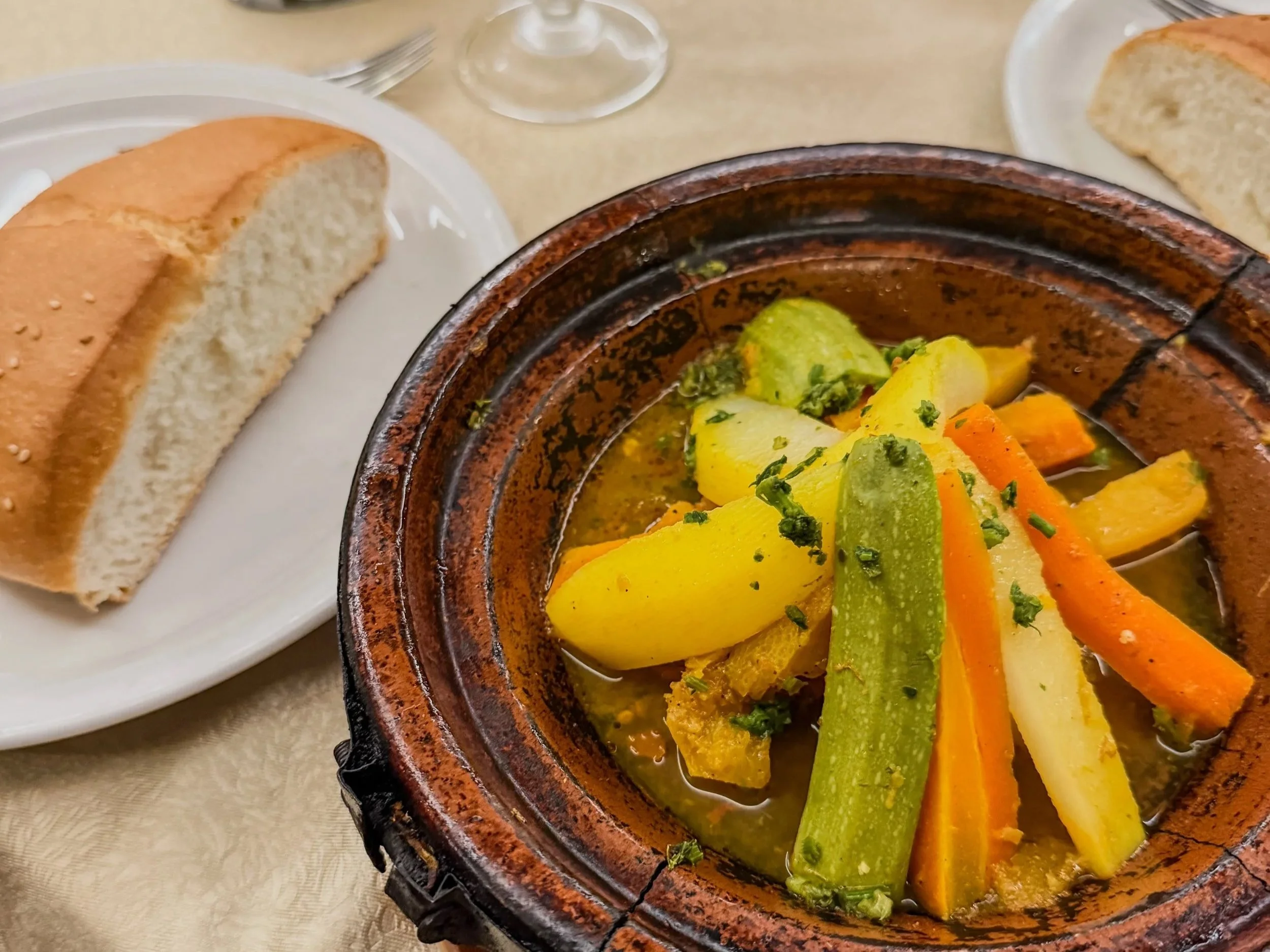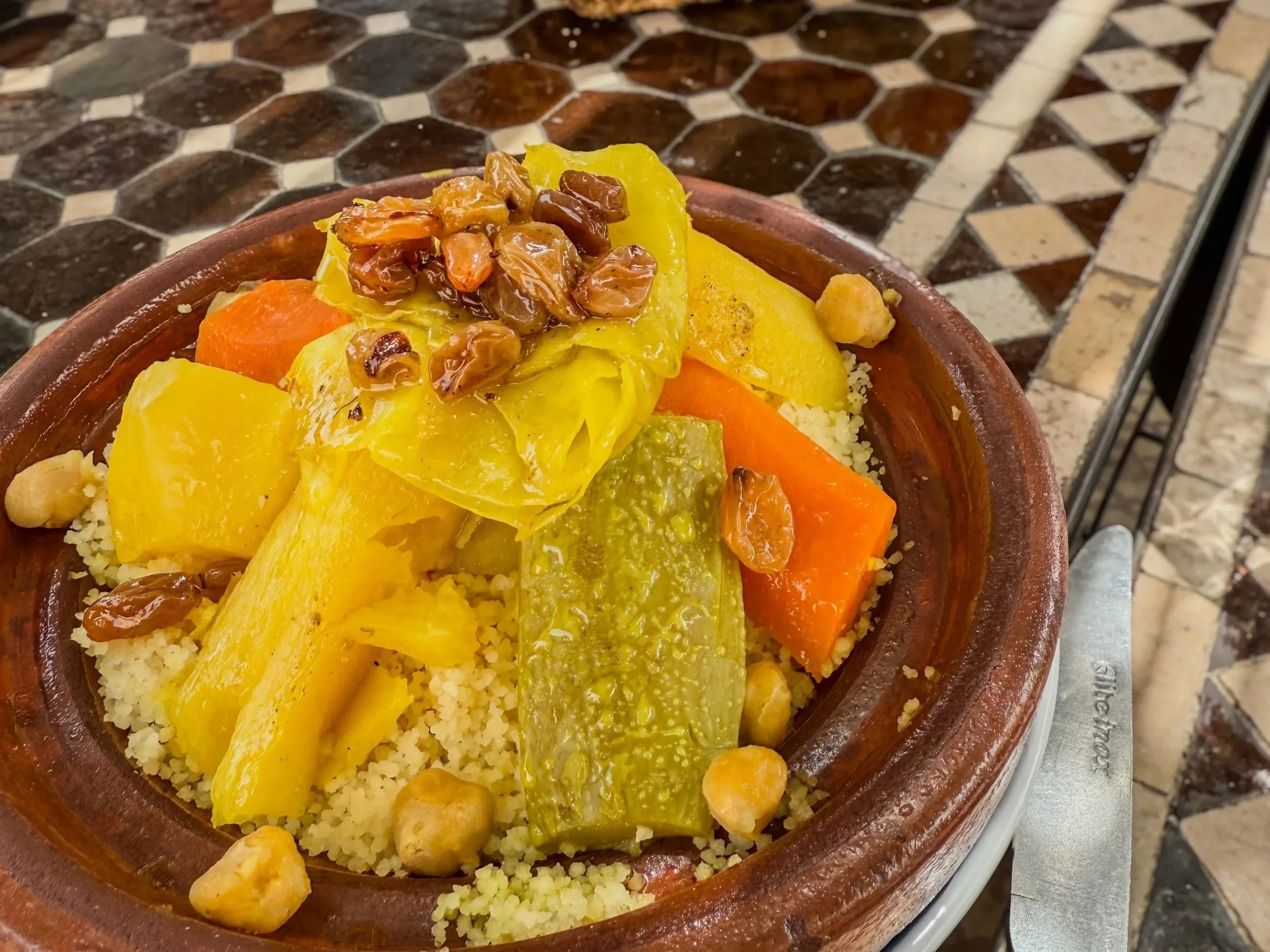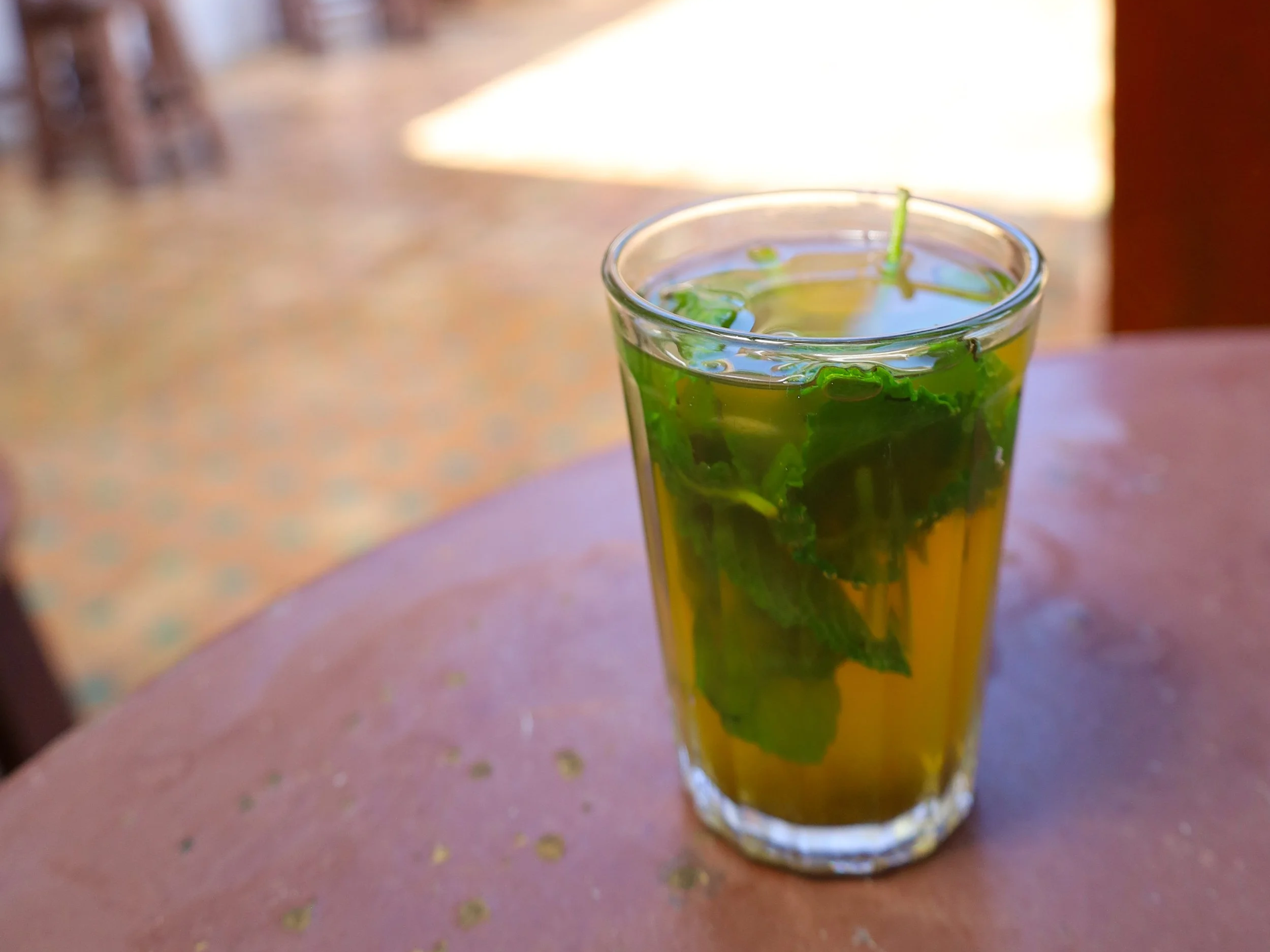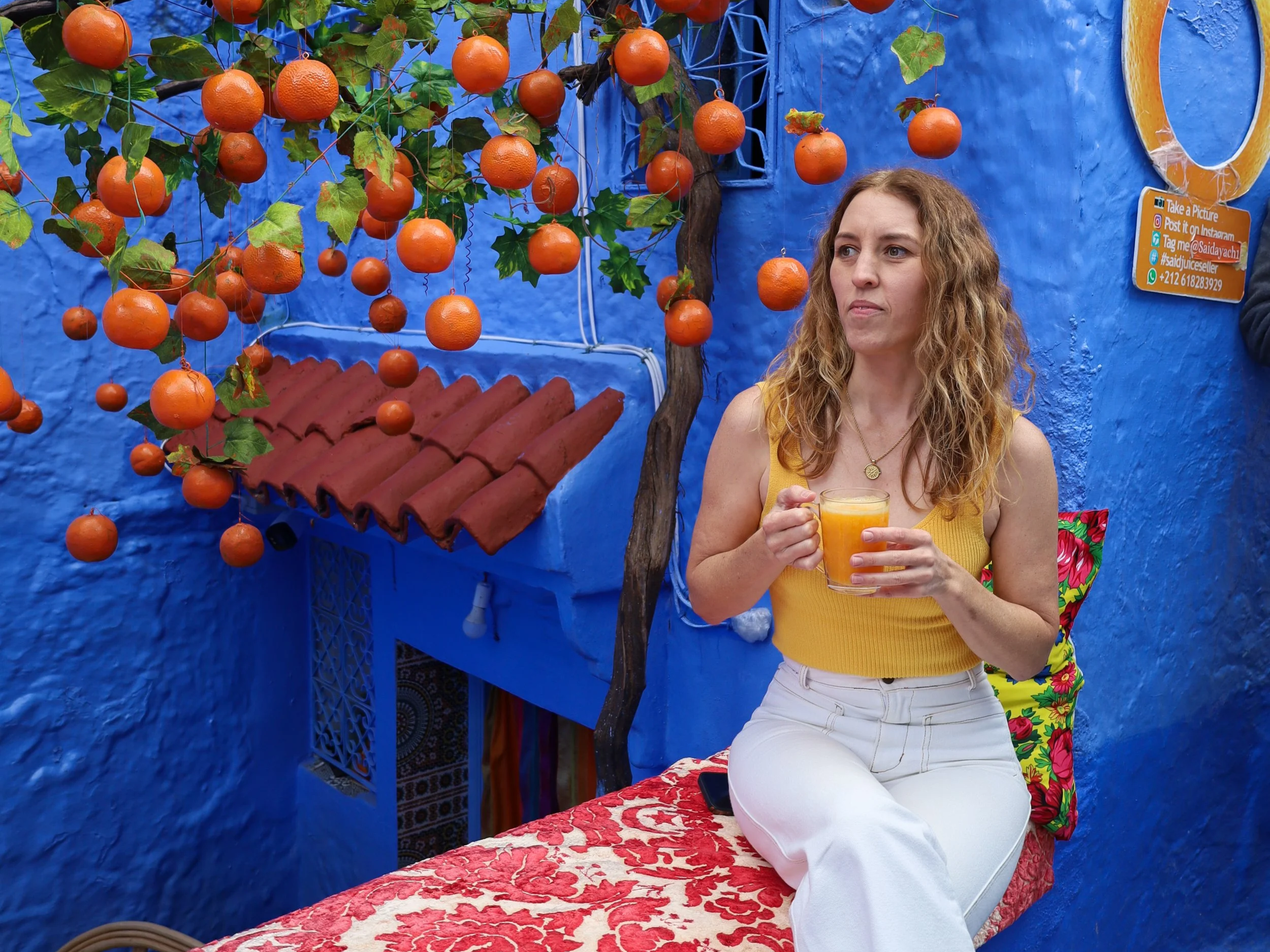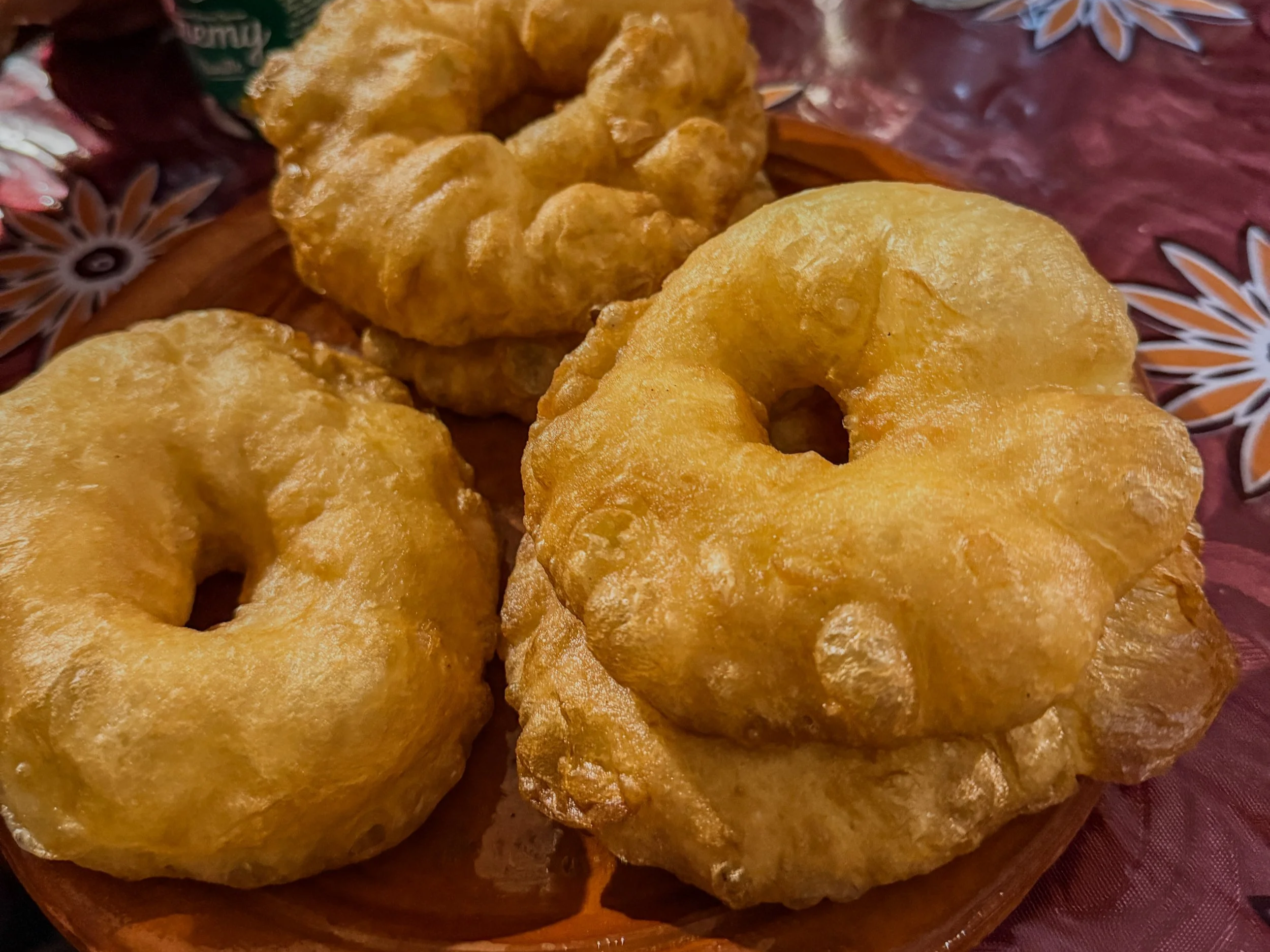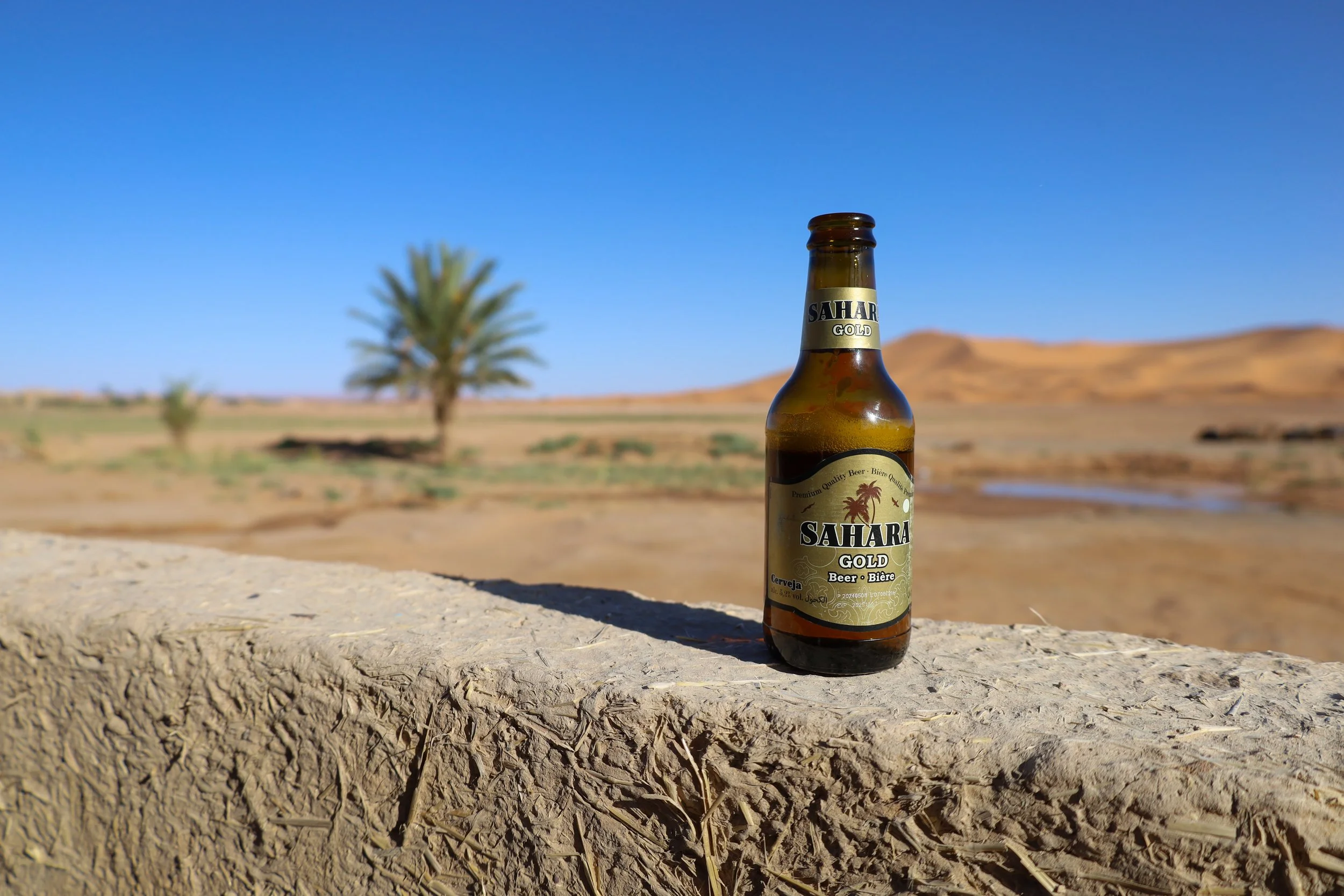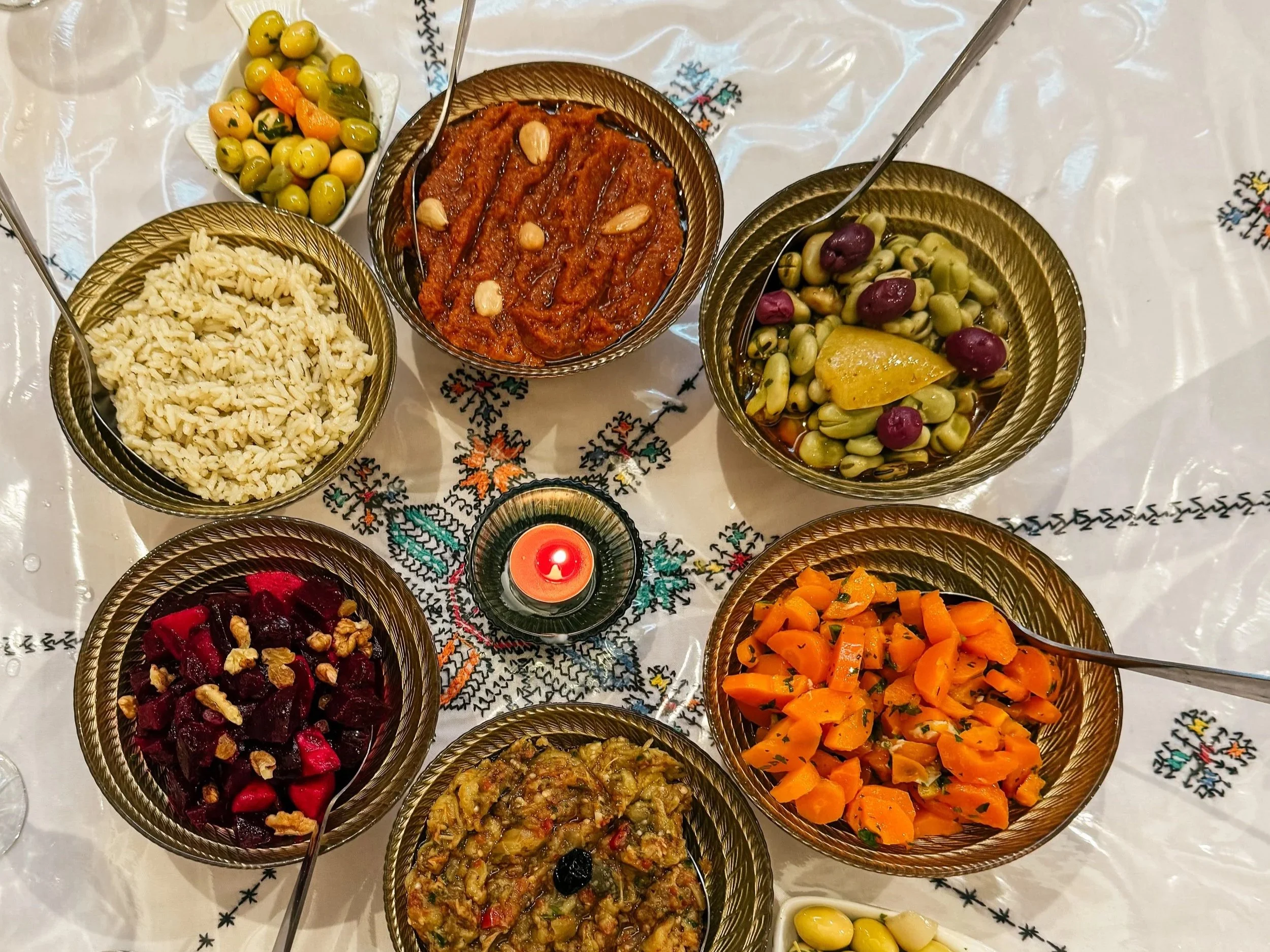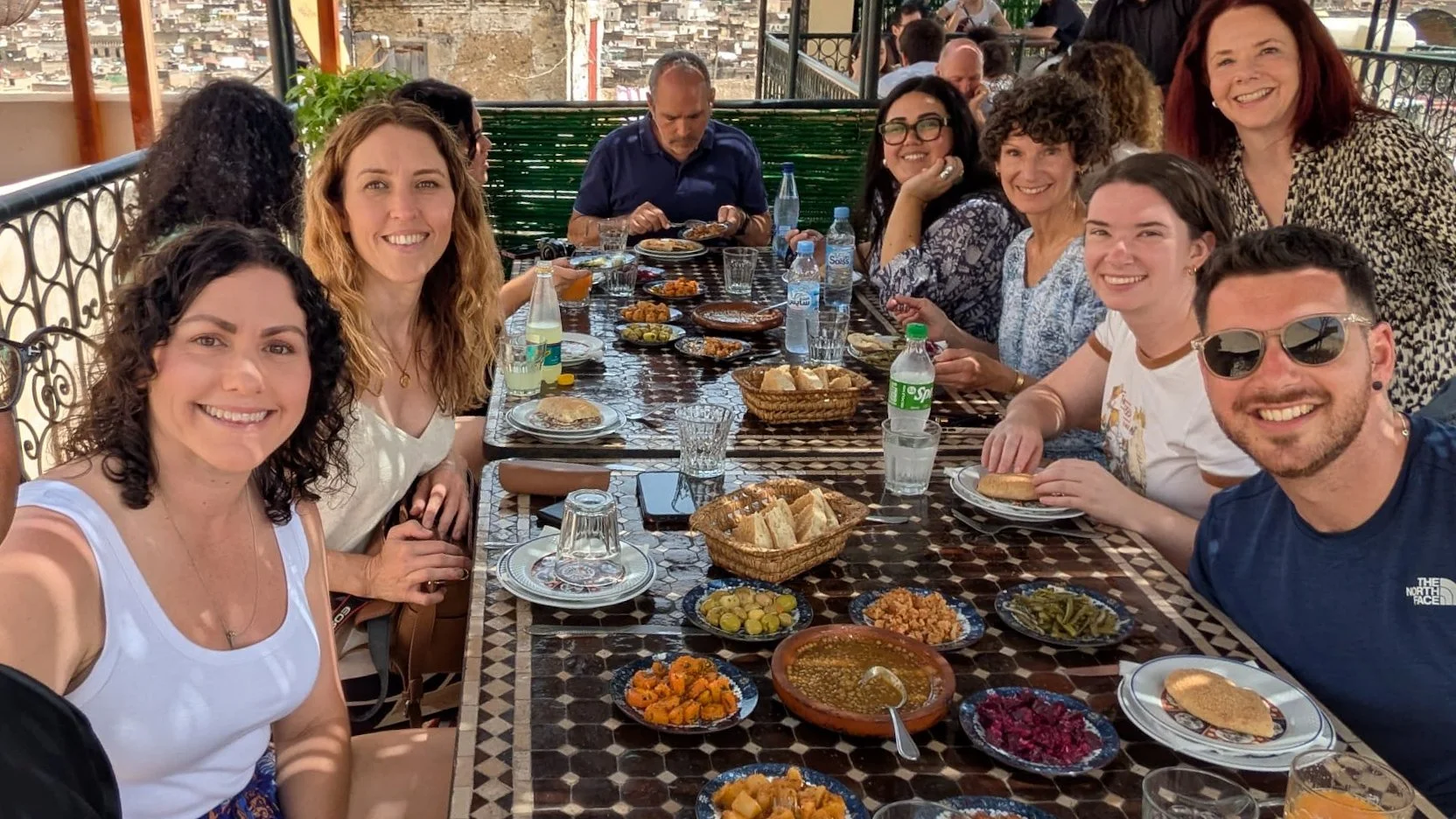What to Eat in Morocco: A Food Lover’s Guide to Moroccan Cuisine
Vegetable tagine in Morocco.
When I think back on my time in Morocco, it’s not just the dazzling souks, the endless Sahara dunes, or the blue alleys of Chefchaouen that come to mind… it’s also the food. Moroccan cuisine is bold, simple, full of heart, and deeply connected to tradition. Every meal tells a story, and reminds you of the country’s warmth and hospitality.
If you’re planning a trip and wondering what to eat in Morocco, you’re in for a treat. From slow-cooked tagines to Friday couscous, tasty pastilla to mint tea, Morocco is a destination where food isn’t just fuel… it’s culture, ritual, and celebration.
Here’s my guide to the best Moroccan food and drinks you absolutely must try.
Tagine - The Dish Morocco Is Famous For
When you picture Moroccan food, chances are you’re imagining a tagine. And for good reason.
These slow-cooked stews, prepared in clay pots, are on almost every menu in Morocco. What makes them so special is their simplicity… meat, vegetables, or legumes are combined with spices like cumin, cinnamon, turmeric, and saffron, then simmered until the flavours meld into something magical.
As a vegan traveller, I often enjoyed vegetable tagines loaded with zucchini, carrots, eggplant, and chickpeas… hearty, fragrant, and deeply satisfying.
Tip: Order a shared tagine with flatbreads (served at nearly every meal). Tearing off bread and scooping directly into the steaming dish feels both communal and authentic.
Couscous - A Friday Tradition
Couscous in Morocco isn’t the quick supermarket version we’re used to back home. This is couscous made from scratch… steamed slowly, sometimes prepared over two to three hours, until it’s light and fluffy.
Traditionally, couscous is eaten on Fridays, making it the best day of the week to try it. I’ll never forget sitting on a rooftop in the Fes medina, sharing plates of couscous with my fellow travellers, overlooking history with incredible views. It was a real ‘pinch me’ moment.
If your trip includes a Friday, do yourself a favour… skip the pizza or pasta and order couscous. It’s a cultural experience as much as a meal.
Pastilla - Sweet Meets Savoury in Fes
One dish I didn’t expect to fall in love with was pastilla (also called b’stilla). It’s a flaky pastry pie, traditionally filled with pigeon or chicken, dusted with cinnamon and icing sugar.
Now, before you panic… I promise you can find vegetarian and vegan versions. In Fes, I had a vegetable-filled pastilla that honestly blew my mind. It was part of a meal at a family-run riad. It was honestly one of the best meals of my life: smoky eggplant salads, bean dishes, sweet carrots, that unforgettable pastilla, and towers of fresh fruit for dessert.
I remember sitting there, grinning from ear to ear, so full I could barely move. Meanwhile, half my group were too sick from food-related issues to even eat it. I felt genuinely sorry for them because they missed out on what I can only describe as Moroccan magic.
Mint Tea - Morocco’s Liquid Gold
No trip to Morocco is complete without endless glasses of mint tea.
Known as “Moroccan whisky”, this drink is everywhere… served with every meal, every snack, every conversation, and locals love it with a lot of sugar. Seriously, sugar is in almost everything in Morocco, from salads to mains, and their tea is no exception.
Refusing tea can sometimes be seen as disrespectful, so I happily sipped away. The theatre of pouring it from incredible heights into tiny glasses is an art form in itself.
Tip: Try it both ways… with sugar and without. You’ll understand why Moroccans have such a sweet tooth.
Oranges, Dates & Olives - Everyday Staples
If Morocco had a snack identity, it would be three things: oranges, dates, and olives.
Oranges: Fresh juice is everywhere, from street stalls in Marrakech to breakfast tables in riads. For dessert, expect sliced oranges dusted with cinnamon. Simple, but oh so delicious.
Dates: Sweet, sticky, and often bought in bulk. Dates are often shared as a sign of friendship or respect. I loved watching guides and locals pick out the best date to offer as a gesture of generosity.
Olives: You’ll find them served with almost every meal.
Sweet Treats - Moroccan Pastries & More
Moroccan desserts are often less about heavy sweets and more about fresh fruit and small pastries.
At one meal in Fes, I tried a delicious almond biscuit that tasted like biscotti, and “snowball” cookies, served alongside… you guessed it… mint tea. Breakfasts sometimes featured fried local donuts, not overly sweet but strangely addictive.
If you have a sweet tooth, Moroccan bakeries are full of pastries flavoured with almonds, honey, and sesame. Perfect for grabbing on the go between sightseeing.
Drinking in Morocco - What You Need to Know
Morocco is a mostly dry country, but alcohol is available if you know where to look. Many restaurants and hotels don’t serve it, but you can find bottle shops connected to supermarkets, or places where you can BYO.
Surprisingly, Morocco has its own wine regions (like Meknes) worth trying, and local beers like Sahara Beer (yes, we bought it when heading to the Sahara just because of the name!) are easy to find.
For cocktails, Marrakech has some hidden gems… like the underground bar we discovered, where drinks were works of art and desserts just as impressive.
Vegan & Vegetarian in Morocco
As a vegan traveller, I found Morocco easier than expected. Tagines, couscous, pastilla, and salads were often made vegetarian or vegan. In fact, towards the end of our trip, many of the meat-eaters in our group started ordering the vegetarian dishes because they were so good.
That said, there were moments where the only options were meat or omelette. I tried to be flexible, but couldn’t bring myself to eat an omelette one day, and happily skipped the meal instead (much to the horror of my travel companions, who insisted I must be starving). Trust me, we were very well fed in Morocco.
A Word on Salads
One important tip: don’t order raw salads unless you’re in a trusted or guided restaurant. Locals warned us that in some places, salads are pre-prepared and left sitting for days, which can make travellers sick.
But when salads are fresh? They’re incredible. Think smoky eggplant, beans, and sweet carrot dishes bursting with flavour. (The salads pictured are part of the best meal I’ve ever eaten)
Eating in Morocco
Eating in Morocco isn’t just about the food… it’s about connection. Meals are shared, mint tea is poured, and fruit or dates are offered as gestures of generosity. Some of my favourite memories aren’t just what I ate, but how I ate: on rooftops overlooking medinas, inside family riad homes, around long tables where food was passed hand to hand.
If you’re heading to Morocco, come hungry and curious. Order the tagine. Save Friday for couscous. Accept the mint tea. And don’t be afraid to dive into dishes you’ve never heard of before.
Because Moroccan food isn’t just a taste, it’s an experience.
A group lunch on a rooftop in the Medina in Fes, Morocco.
Planning a trip to Morocco? You might also like:
Disclosure: This blog includes affiliate links. I will be paid a commission if you use these links to make a purchase.
